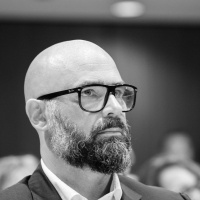A Real Economic, Environmental and Social Opportunity

Tribune of Romain Poulles
The linear economic model “extract, produce, consume, throw away” has reached its limits. It is no longer sustainable in terms of the availability of resources in a consumer society where emerging countries such as China, India or Russia, with a large share of raw materials, tend to access the same goods and Services that the so-called developed countries. This economic model is also no longer sustainable in environmental terms, on a planet where natural resources are scarce and where the processes of extraction and production permanently degrade soil, water, air and biodiversity.
"
The circular economy, an economic model inspired by the natural ecosystem, can be considered a true economic, environmental and social opportunity to preserve our planet for future generations.
The model of the circular «economy» (whose name is accurate) with positive impacts is in breach with sustainable development as still largely practiced and which limits its ambition to be less bad, to reduce the negative impacts of the presence of modern humans on Earth, to reduce consumption, to limit our print. But being less bad still means bad! We are so obsessed with the idea that the presence of man must necessarily have negative impacts on his environment that we can no longer imagine, to create positive impacts on man and his wellbeing, on the nature and the economy. This is what the circular economy is aiming for!
The circular economy is not a new concept but its current form has gained momentum just ten years ago. For the past 3 years, Luxembourg has been closely interested in the theme. Ongoing initiatives and pilot projects have the potential to bring our country to the forefront of the motor countries and to become a model in transposing the principles of the circular economy.
The stakes of this transposition are diverse:
Economical stakes and challenges
The transition to a more circular model makes it possible to reduce the quantities of extracted resources in order to produce eco-designed goods, i.e. designed with less «virgin» raw materials and energy and more easily reusable and cyclable (products Intended for several cycles of use). Each product will be designed to be repairable, disassembled, adaptable...
This economy tends to reuse the "secondary raw materials" resulting from the disassembly and thus makes it possible to secure the flows and costs of material supplies. Raw materials, once imported into the region, are largely acquired by local enterprises. It also creates new markets for reuse, repair, recycling, disassembly, deconstruction and remanufacturing. At their very core, all these trades will be local or regional.
This economy is characterized by new economic models such as sharing economics and economics of functionality in order to move from the possession of a product to the stage of having access to a product.
Environmental stakes and challenges
Another issue, a direct consequence of the implementation of this new model, is the preservation of scarce resources. The idea of the circular economy is not to eliminate waste but the notion of waste. By counting on a longer life for goods and services and the development of recycling, the circular economy makes it possible to extract less raw materials, reuse recycled materials, turn towards an economy of service and not of physical possession and to rethink the modes of production by combining energy sobriety and technological innovations. Our ecological footprint currently exceeds the capacity of a planet and the prospects for 2050 evoke the use of 2 and a half planets to satisfy all the needs of a population of 9 billion people.
Applying the principles of the circular economy will give a true perspective to humankind while preserving our environment and ultimately creating positive impacts on it.
Social stakes and challenges
Through the development of re-use, the emergence of the service economy, the repair of consumer goods and the research and development of new technologies and innovation, a whole range of trades are born or consolidated through the transition to a more circular economy. The majority of these trades are intrinsically geographically linked to the region in which they are practiced and allow to relocate employment within a globalized economy. Through industrial and territorial ecology, all the players who make up the territory reinvent their mode of exchange and collaboration in order to find lasting solutions to reduce their impact and create values. The transition to a circular economy is a true vehicle for social ties.
And last but not least, widespread implementation will certainly reduce and hopefully eradicate poverty by privileging access to property for the majority of the products we need in our daily lives. Each of us is concerned and each of us can participate in this revolution! The first step is to realize that we, our associations, our companies, our buildings, every human activity can have a positive impact on our environment, our economy and also on human well-being.
"

Romain Poulles - Founder and CEO of PROgroup sa
A committed advocate of the circular economy, Romain Poulles is at the origin of the real estate project SOLARWIND and the Ecoparc Windhof. He currently chairs the Luxembourg Center for Circular Economy and the EcoInnovation Cluster. Since 2016, he has been a member of the Higher Council for Sustainable Development, expert within the Higher Council for Sustainable Construction and a member of the interdepartmental strategic group for the circular economy.
To be read also in the dossier " Circular Economy: Closing Loops":


